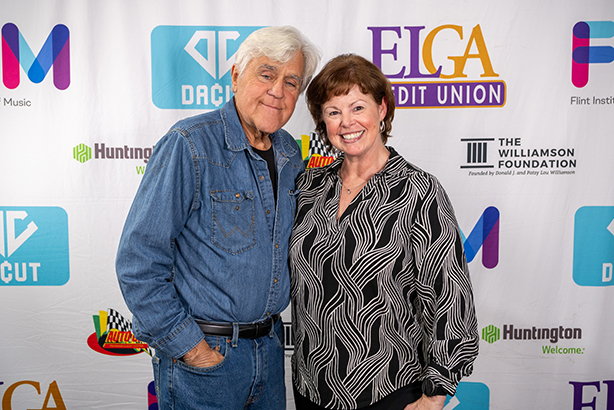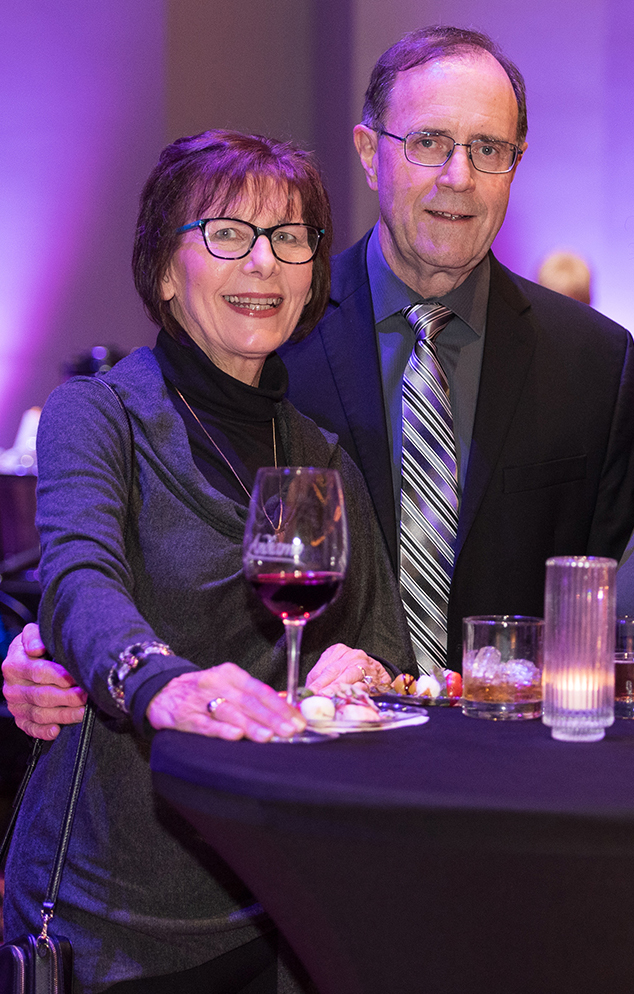Board Envisions the Creative Future of Flint
The FIM Board of Trustees spent the past year developing a seven-year strategic framework to guide the organization, developing a new aspirational vision statement and a mission statement that expands our commitment to centering the community in all we do.
 Typically, a mission statement lasts the lifetime of an organization, but FIM has changed significantly since the consolidation of Whiting Auditorium and Capitol Theatre which has affected every aspect of our work, including our business plans, governance model and organizational structure. While we will continue to produce and present performing arts programming as well as provide music, dance and theatre instruction for all ages, our focus will continually place the community, particularly youth, at the center of our work.
Typically, a mission statement lasts the lifetime of an organization, but FIM has changed significantly since the consolidation of Whiting Auditorium and Capitol Theatre which has affected every aspect of our work, including our business plans, governance model and organizational structure. While we will continue to produce and present performing arts programming as well as provide music, dance and theatre instruction for all ages, our focus will continually place the community, particularly youth, at the center of our work.
We are pleased to share our new Mission and Vision Statements with the community we serve and welcome your continued involvement and support as patrons, volunteers, donors and advocates.
Mission: “Flint Institute of Music (FIM) awakens and nurtures the creative lives of children, youth, and adults. We strive to be a trusted guide through the richly diverse world of the performing arts, and a cornerstone of community connection, wellness, and pride.”
Vision: “Flint Institute of Music (FIM), working alongside its cultural sector partners, sees a time when every Genesee County resident has lifelong opportunities to discover, practice, and enjoy their creative passions in the tperforming arts. Our work draws from the belief that everyone has a creative voice of intrinsic worth, and that it is every community’s obligation to awaken and nurture that voice. Our ultimate success as an institution will be reflected in the community’s imaginative power.”
Providing guidance
These statements are only one component of a year-long strategic planning process for board and administrative staff members, led by arts and culture management consultant Alan Brown, principal managing director of WolfBrown arts research and planning consultancy. With Brown’s guidance, and using these new statements as a foundation, the Governance and Executive committees of the Board of Trustees helped create a roadmap for the organization in the form of the strategic framework, which will serve as a guide for FIM staff and board members as they create a plan of action.
Christopher Estes has been part of the FIM Board of Trustees since 2012 and now serves as its chair. “It is my hope that the staff, management and board of FIM will fully embrace and embody the new mission, vision and strategic framework,” he says, noting that he personally intends to show steadfast dedication to it, continuously reinforcing its importance with all stakeholders.

“Without a clearly defined mission, an organization is a ship without a rudder,” adds DJ Trela, a member of the Governance and Finance committees and a board trustee. “Employees may have oars but could be rowing in different directions!”
Trela has served on Cultural Center boards since 2003, including four years as Chair of the Flint Cultural Center Corporation (FCCC) Board, an FCCC representative on the Flint Institute of Arts Board of Trustees, and for the last four years as a trustee at FIM.
“A core value through all these years was creating the optimal structure for all the entities within the Cultural Center to thrive and succeed to the greatest degree possible,” he says.
Investing in youth
For Trela, like many members of the board and staff, that core value has grown out of his personal encounters with the arts. “My own exposure to live theatre, choirs, chamber and symphony orchestras has had a profound positive effect on me. The benefits I received, I would like everyone – but especially young persons – to have,” he says. “If young people are exposed to the arts at a young age, they will benefit from these experiences their entire life.”
Janice Sova, Governance committee chair and vice chair of the board, agrees that encouraging lifelong involvement in the arts benefits kids in unique and vital ways. “There is so much value in the arts programs available at FIM, giving kids experiences that will help them grow mentally and emotionally,” says Sova. “We want to ensure that their encounters with FIM and the arts are not a one-time thing. We really considered how we can keep them coming back, how we can help them see the long-term benefits.”
Sova has served on the board for the last four years, but she grew invested in the future of FIM years before when she enrolled her children in music lessons at Flint School of Performing Arts (FSPA). “Encouraging our youth is so important to me,” she says. “So many young people don’t know what they’re capable of, or even what opportunities are available to them. But knowing there are programs and resources available gives them hope that they can do or be anything.
“Whether it’s seeing Flint Rep performances or the Symphony or a Broadway show, or maybe in classes with likeminded people and encouraging teachers, arts bring youth – and all people – together,” says Sova.
Building a firm foundation
It may be true that performing arts experiences naturally bring people together in a unique way, but according to Tom

Lillie, finance committee chair and treasurer of the board, the best way for FIM to be a “cornerstone” of the community is to ensure that its own foundation and governing body are working together efficiently.
“My goals when joining the board were to bring structure and planning and to encourage board member involvement,” says Lillie. For that reason, one of his first undertakings on the finance committee was the introduction of a series of metrics he calls “Tasks for Success,” as well as a committee calendar to keep the group focused.
“I believe that embracing planning and structure within an organization – like establishing yearly defined roles, adhering to procedures and accepting board member feedback – will create a board that can fulfill FIM’s vision and mission to draw our community together,” he says.
It’s not just Lillie’s career as an accountant that has inspired his participation on the board or his dedication to the strategic planning process. He and his wife, Kay, have attended Flint Symphony Orchestra concerts since they moved to Flint in 1974. The couple continues to attend as many events as possible across FIM venues, and they are adamant about giving financially to the organization. “We both believe the Cultural Center is the place to be,” he says. “Through my personal experience, I already knew what a positive impact the performing arts could have and I wanted others to have that same opportunity.”
“I encourage everyone to experience the performing arts at least once in their lifetime, so they don’t miss what it has to offer,” says Lillie.

Showing up
Dr. Townes Osborn Miller has been on the FIM board of trustees since 2021, but she had a vested interest in the success of the arts in Flint long before that. In addition to other various positions on Flint Cultural Center boards and committees, she served on The Whiting’s governing council from 2014 until 2021 when the building and its programs merged with the Flint Institute of Music.
“My personal ‘mission’ was to continue to help with and be a part of the addition of Whiting Auditorium and the Capitol Theatre,” says Miller, who believes that by vowing to be a “trusted guide” for all Genesee County residents and offering ever more opportunities to “discover, practice and enjoy their creative passions in the performing arts,” the new mission and vision statement directly echo her personal goal.
Though Miller is herself a professional musician and professor of music, she recognizes the important distinction the statement provides: the value of performing arts is not limited to practice, pursuit and production. Their intrinsic benefits can be discovered in equal measure by both patrons and performers, which is a vital consideration with the addition of the two presenting houses that largely appeal to spectators.
“My hope for FIM and the community going forward is that we foster and grow a love and respect for all of the arts across all ages, backgrounds and incomes,” says Miller. “Flint as a whole is uniquely positioned with the cultural district to make an impactful difference in the lives of families and individuals.”
And while it was Whiting Auditorium and Capitol Theatre that initially encouraged her involvement on the board, Miller acknowledges that the breadth of programming FIM collectively provides makes the board’s vision for the future all the more achievable.
“My hope over the next seven years is that every resident of Genesee County has the opportunity to experience just one aspect of our organization,” she says. And Miller, along with the board of Trustees, plans to act as a solid sounding board for the community while providing hands-on assistance as FIM works towards its goals.
“The best way to help FIM realize its vision is to be present,” she says.